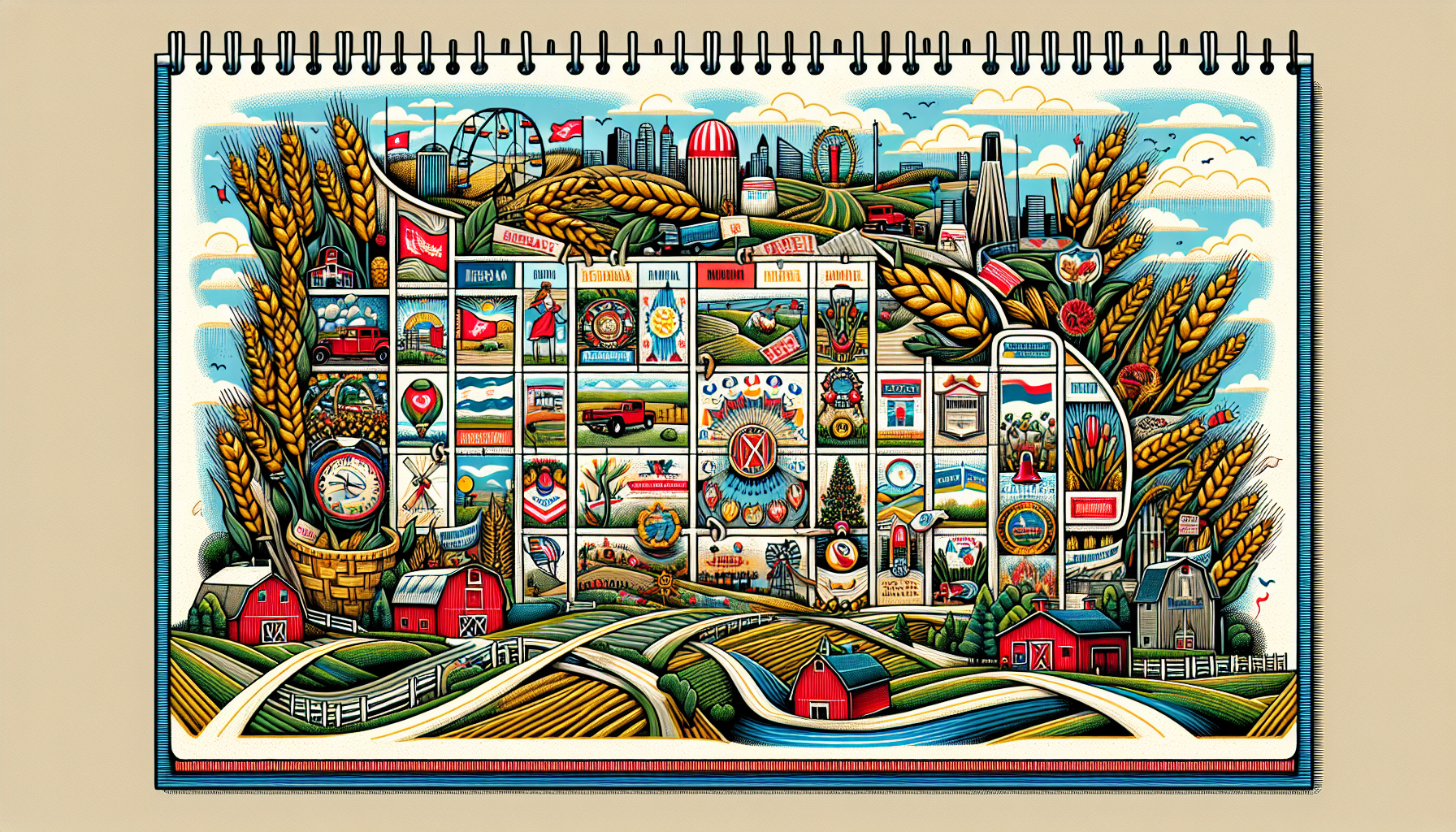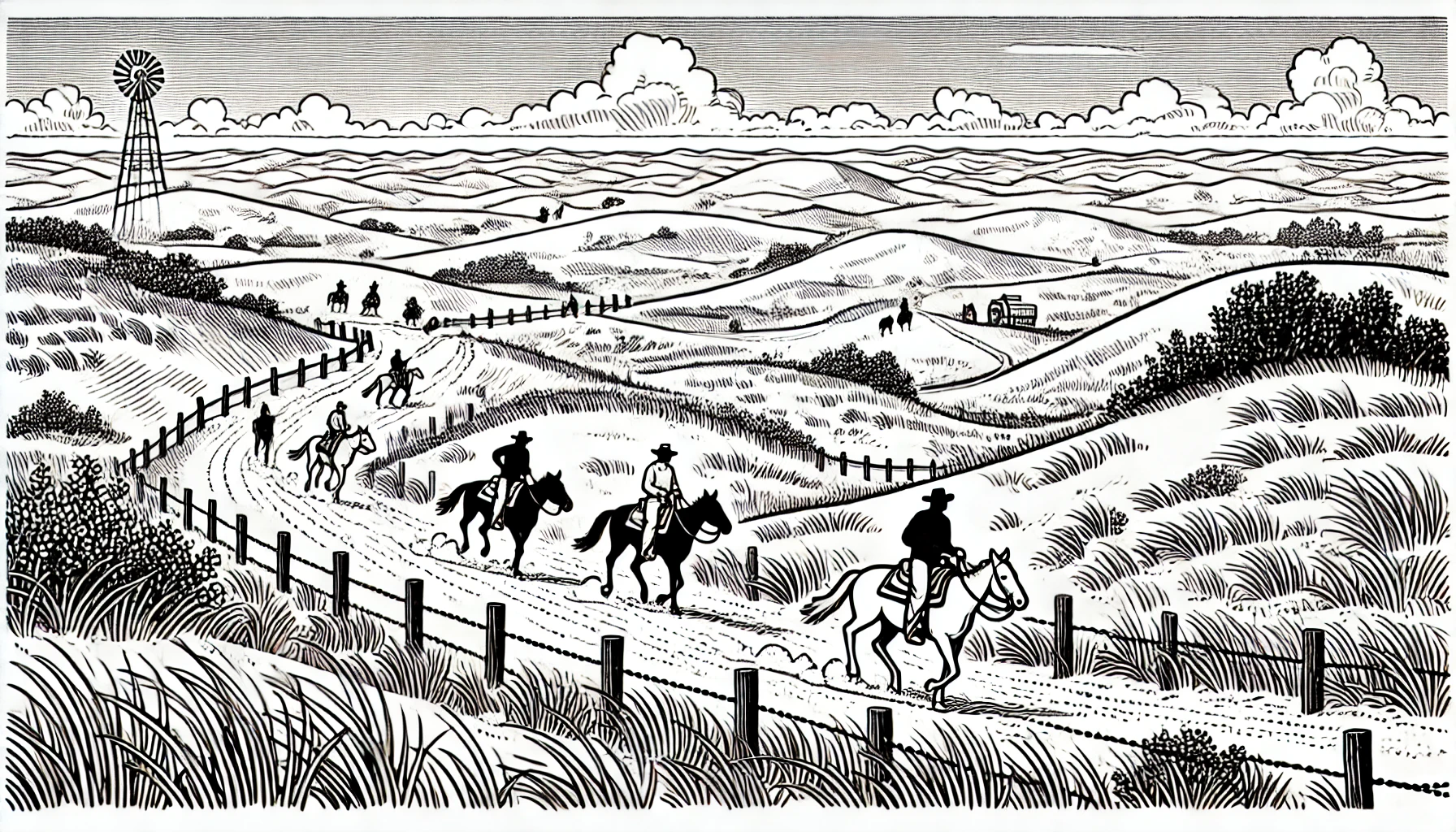Traveling Through Nebraska: Omaha Steakhouse Culture

Omaha, Nebraska, has long been synonymous with exceptional steakhouses, with a rich history dating back to the early 20th century. The city's unique blend of Midwestern cattle ranching tradition, railroad history, and entrepreneurial spirit has contributed to the evolution of its distinctive steakhouse culture. At the heart of this phenomenon lies the intersection of local beef production, expert grilling techniques, and a deep-seated passion for providing top-notch dining experiences.
One of the most iconic institutions in Omaha's steakhouse scene is Gorat's Steak House, located at 4917 Center Street in the heart of the city. Established in 1946 by Louis Gorat, the restaurant has been family-owned and operated for over 75 years, serving up premium cuts of beef to locals and visitors alike. Gorat's commitment to using only the finest Nebraska-raised beef has helped to establish it as a benchmark for steakhouse excellence in Omaha.
Another notable example of Omaha's steakhouse culture is the Old Homestead Steakhouse, situated in the historic Old Market district at 1727 St. Mary's Avenue. This renowned eatery has been a staple of the city's dining scene since 1970, offering an exceptional selection of dry-aged steaks and other premium meats. The Old Homestead's dedication to preserving traditional steakhouse values, combined with its commitment to sourcing the finest local ingredients, has earned it widespread acclaim among steak connoisseurs.
Omaha's steakhouse culture is also deeply intertwined with the city's history as a major railroad hub. The city's proximity to major rail lines enabled the rapid transportation of fresh beef to markets across the country, contributing to the growth of the local meatpacking industry. This, in turn, fueled the development of Omaha's steakhouse scene, as restaurateurs capitalized on the abundance of high-quality beef to create unique dining experiences that showcased the city's rich culinary heritage.
In addition to its rich history and local beef production, Omaha's steakhouse culture is also characterized by a strong emphasis on grilling techniques and exceptional customer service. Many of the city's top steakhouses, including Gorat's and the Old Homestead, pride themselves on their ability to provide a truly personalized dining experience, with expertly trained staff and a commitment to meeting the unique needs of every customer.
As Omaha continues to evolve and grow, its steakhouse culture remains an integral part of the city's identity, reflecting its deep-seated passion for exceptional food, warm hospitality, and community tradition. Whether visiting one of the city's iconic steakhouses or exploring the many innovative newcomers to the scene, travelers to Omaha are sure to discover a rich and vibrant culinary culture that is truly unique to this Midwestern city.
The city's steakhouse culture has also been influenced by notable figures in Omaha such as Warren Buffett, who is a regular at Gorat's Steak House. Buffett has often praised the restaurant's commitment to quality and customer service, and has even been known to treat friends and business associates to meals there.
Omaha's steakhouse culture is a true reflection of the city's history, people, and values, and remains an essential part of its identity as a world-class culinary destination.
One of the most iconic institutions in Omaha's steakhouse scene is Gorat's Steak House, located at 4917 Center Street in the heart of the city. Established in 1946 by Louis Gorat, the restaurant has been family-owned and operated for over 75 years, serving up premium cuts of beef to locals and visitors alike. Gorat's commitment to using only the finest Nebraska-raised beef has helped to establish it as a benchmark for steakhouse excellence in Omaha.
Another notable example of Omaha's steakhouse culture is the Old Homestead Steakhouse, situated in the historic Old Market district at 1727 St. Mary's Avenue. This renowned eatery has been a staple of the city's dining scene since 1970, offering an exceptional selection of dry-aged steaks and other premium meats. The Old Homestead's dedication to preserving traditional steakhouse values, combined with its commitment to sourcing the finest local ingredients, has earned it widespread acclaim among steak connoisseurs.
Omaha's steakhouse culture is also deeply intertwined with the city's history as a major railroad hub. The city's proximity to major rail lines enabled the rapid transportation of fresh beef to markets across the country, contributing to the growth of the local meatpacking industry. This, in turn, fueled the development of Omaha's steakhouse scene, as restaurateurs capitalized on the abundance of high-quality beef to create unique dining experiences that showcased the city's rich culinary heritage.
In addition to its rich history and local beef production, Omaha's steakhouse culture is also characterized by a strong emphasis on grilling techniques and exceptional customer service. Many of the city's top steakhouses, including Gorat's and the Old Homestead, pride themselves on their ability to provide a truly personalized dining experience, with expertly trained staff and a commitment to meeting the unique needs of every customer.
As Omaha continues to evolve and grow, its steakhouse culture remains an integral part of the city's identity, reflecting its deep-seated passion for exceptional food, warm hospitality, and community tradition. Whether visiting one of the city's iconic steakhouses or exploring the many innovative newcomers to the scene, travelers to Omaha are sure to discover a rich and vibrant culinary culture that is truly unique to this Midwestern city.
The city's steakhouse culture has also been influenced by notable figures in Omaha such as Warren Buffett, who is a regular at Gorat's Steak House. Buffett has often praised the restaurant's commitment to quality and customer service, and has even been known to treat friends and business associates to meals there.
Omaha's steakhouse culture is a true reflection of the city's history, people, and values, and remains an essential part of its identity as a world-class culinary destination.
